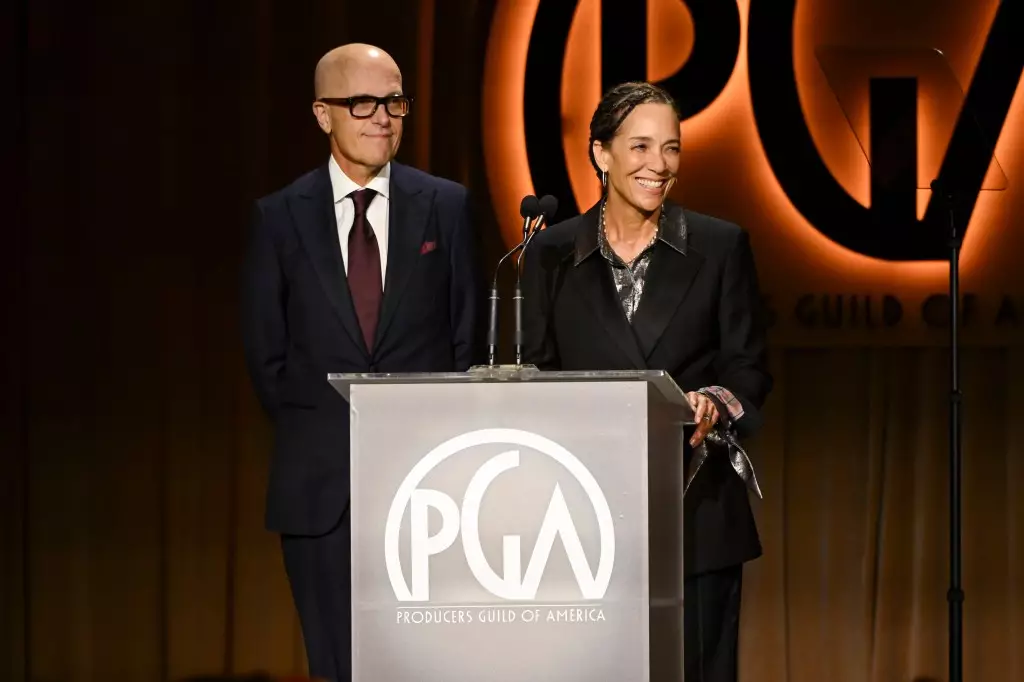In light of the unprecedented wildfires that have recently ravaged Los Angeles, there is an urgent call to action from those within the entertainment industry. At the recent Producers Guild of America (PGA) Awards, co-president Donald De Line passionately urged leaders in the film and television sector to prioritize the rejuvenation of production in the city. His address illuminated a pressing concern shared by many: the need for solidarity and support in rebuilding both community and industry after the devastation of these fires. De Line articulated that the recovery of Los Angeles is intrinsically linked to the resurgence of local filmmaking jobs.
The Economic Impact of Wildfires
The wildfires have not only impacted communities but also the very heart of Hollywood—its production landscape. De Line’s pleas came during a moment of reflection, highlighting the profound losses experienced by individuals within the industry. By rallying studios and streaming platforms to bring jobs back to Los Angeles, he underscored a vital truth: cinema and TV are essential components of the cultural fabric and economic viability of the region. The need for studio funding and production resources is paramount in ensuring that the industry can contribute meaningfully to the city’s recovery.
Empathy and Action from Creators
Recognizing the intertwined fate of the industry and those directly affected, PGA president Stephanie Allain shared initiatives aimed at providing relief. With a fund that has amassed over $450,000 for displaced individuals, the PGA demonstrates an industry commitment to recovery. This effort emphasizes not only the financial responsibilities but also a deep-rooted empathy for the community. Hack’s co-creator Jen Statsky echoed these sentiments during the event, reflecting on her team’s long-held relationship with specific Los Angeles locations like Altadena. Such connections highlight the importance of community in storytelling, reminding participants that productions are not just business ventures but collaborations with the people and environment that make them possible.
The absence of productions in the aftermath of the wildfires is troubling, indicated by a reported decline in shooting permit applications. This drop not only affects local economies but also disrupts the collaborative spirit necessary for thriving cinema. Both De Line and Statsky emphasized a collective need for action, suggesting that revitalizing the industry in Los Angeles could lead to broader societal benefits—not just for those in the limelight but for all working-class individuals in the region.
Furthermore, the film industry has historically served as a beacon of resilience and hope, able to adapt and rise above challenges. By fostering a renewed commitment to local production, industry leaders can harness the spirit of community resilience that has been exemplified in recent months.
As the shadow of recent adversities looms over Hollywood, it is especially crucial that industry figures unite towards a common goal: restoring Los Angeles as a vibrant center for creative energy. The collaborative efforts of those at the PGA Awards reflect a larger movement towards industry solidarity. For the future of filmmaking, it is imperative to recognize that returning to Los Angeles is not merely about economic recovery; it is about nurturing the cultural heartbeat of a city that has given so much to the world. By coming together now, the entertainment industry can turn a page towards a brighter tomorrow, reaffirming that Los Angeles is once again ready to make movies—and stories—that resonate with audiences everywhere.

